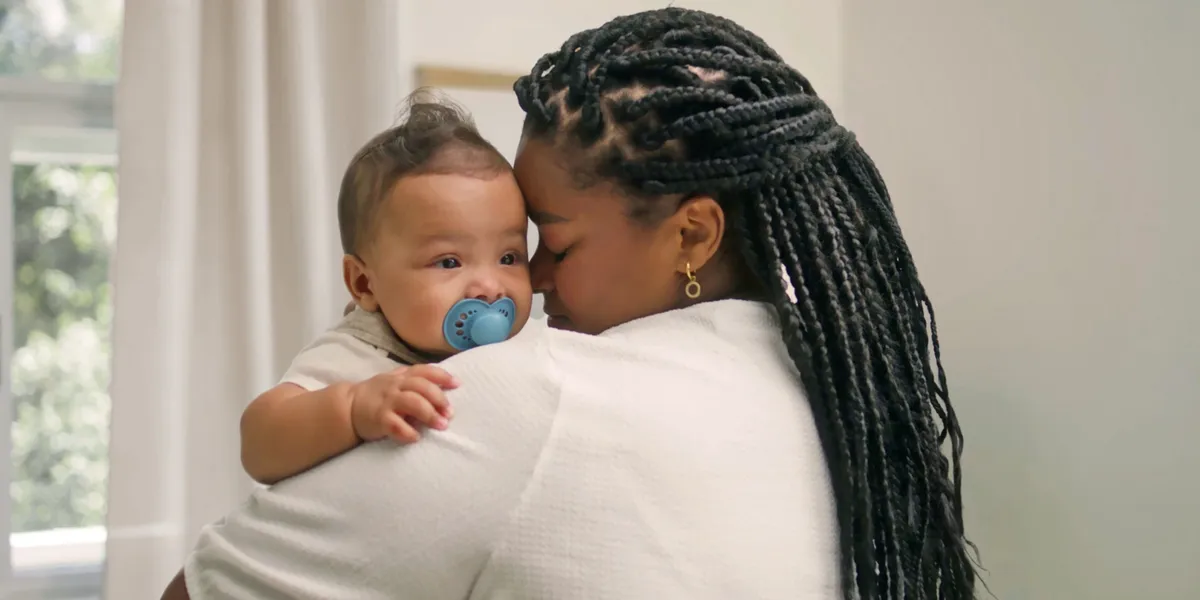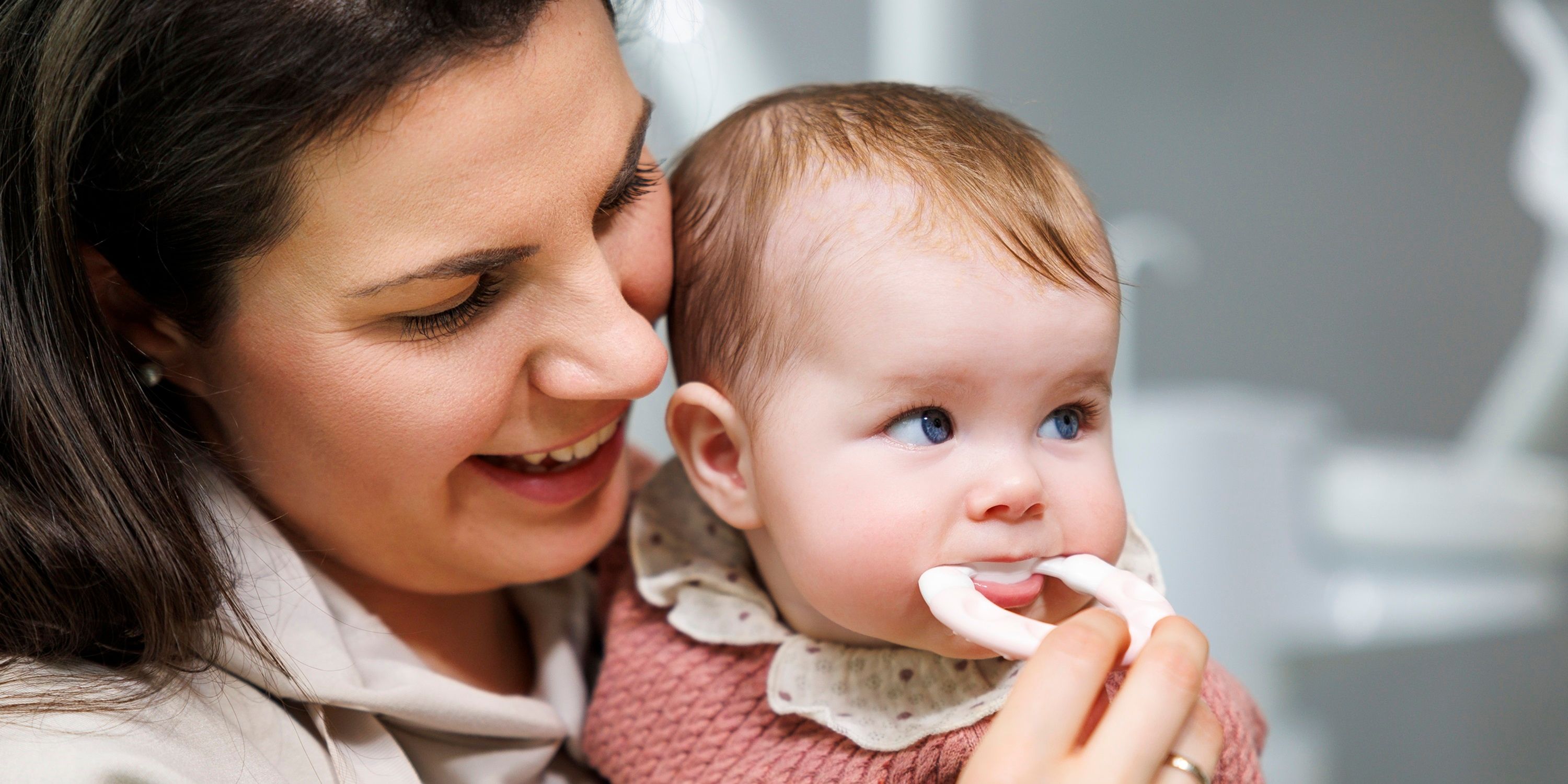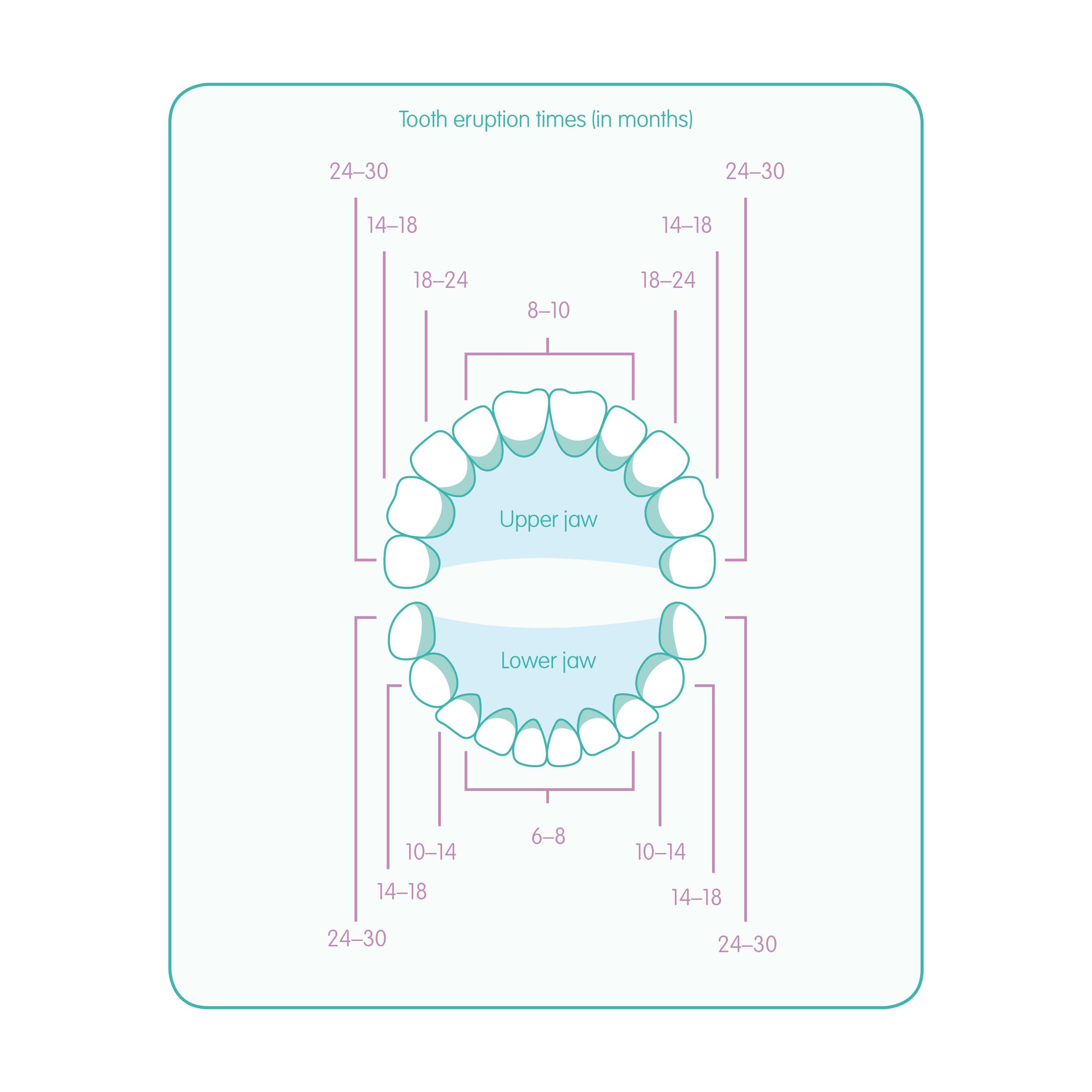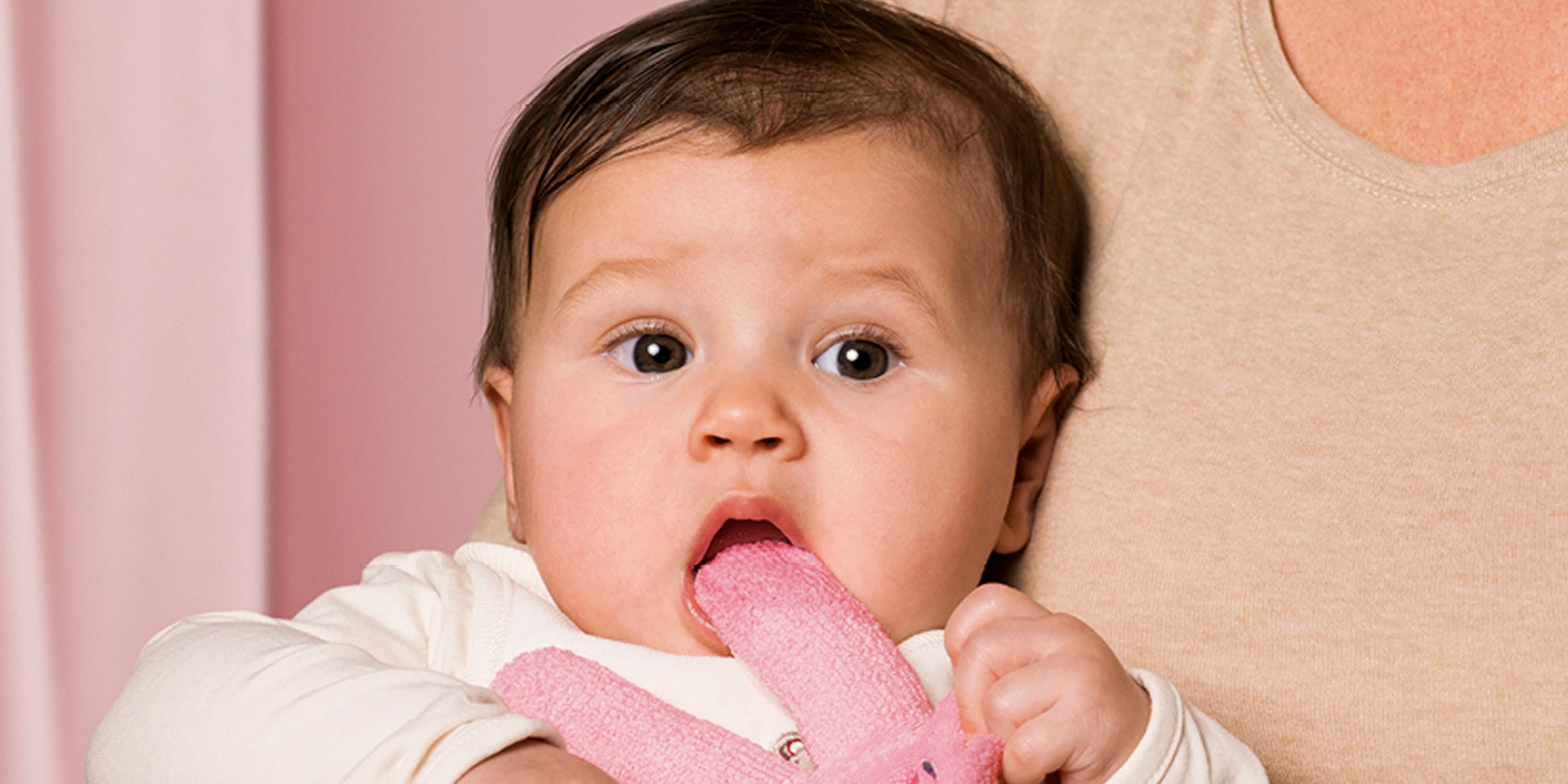The teeth are already formed during pregnancy and are therefore ready in the jaw when a baby is born. But why aren't they there right away and how do you know when teething has started?
Tooth development
Tooth development starts as early as the 6th or 8th week of pregnancy. When the child is born, the teeth – or more precisely the crowns – are completely hidden in the jaw. The roots of the teeth then only develop by the age of about 3 years.
Nature does not intend teething to be a "pathological" process, so fever and colic are rather rare. Despite this, many babies and toddlers are irritated by the new, unfamiliar developments in their mouths. Parents can be a great help by distracting their infant from the tingling, itching, and pressing in the mouth by using special products to help massage and cool the gums.
The first teeth
In most children the first teeth appear between 6-8 months of age, however some babies begin teething at 3 months . The lower two incisors often appear first. The milk teeth are usually all in by the time they turn two and half.
Please note: as with most things related to childhood development, these are estimated timelines – both the order and the age at which teeth develop can vary greatly from one individual to another.
Signs of teething
- Reddened gums
- Swollen gums
- Increased drooling
- Slightly (!) increased temperature
- Restlessness, increased crying
- Refrigerated teething rings
- Damp washcloths to chew on
- Drinking plenty of water
- Massage teething rings or brushes
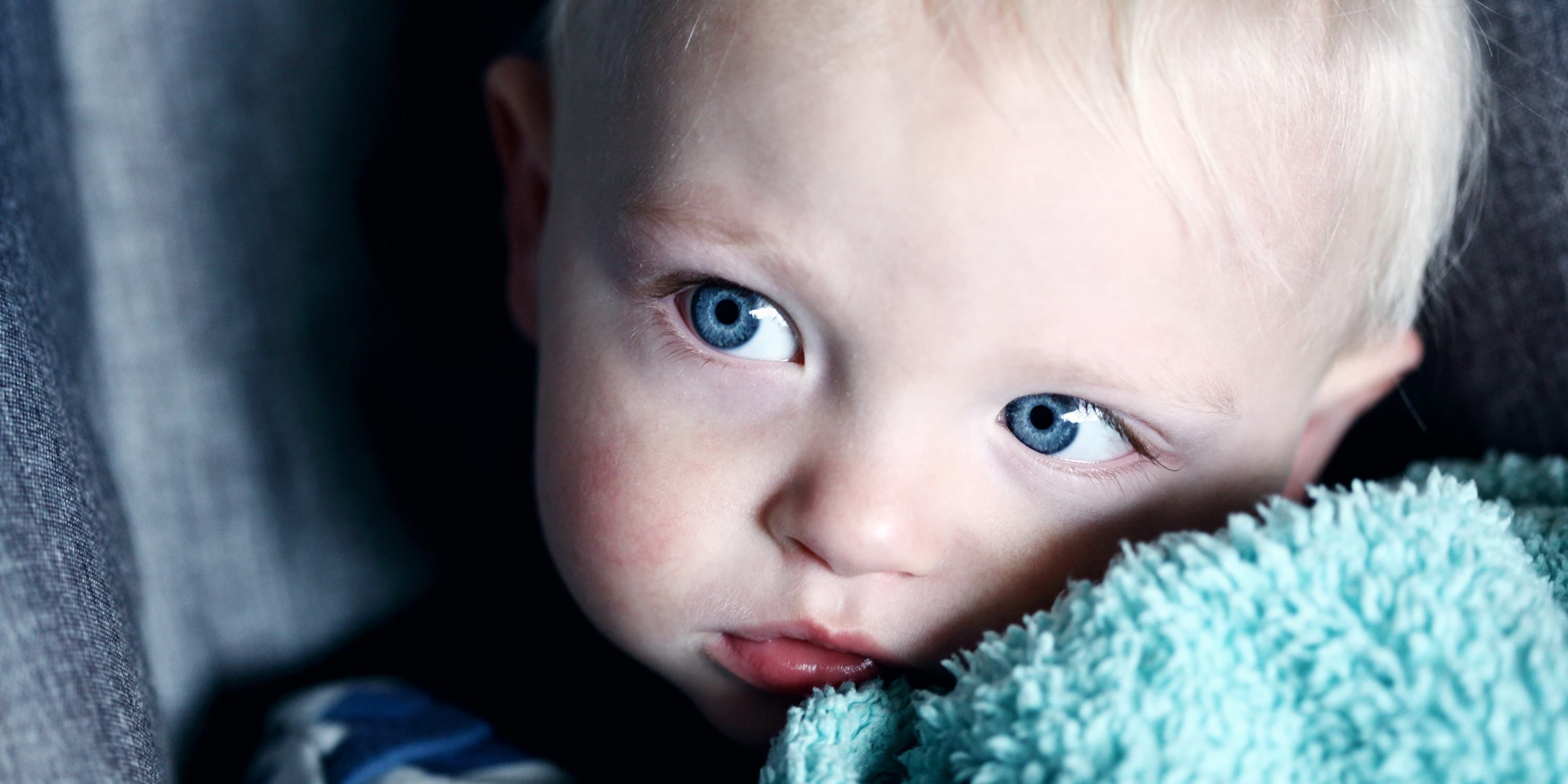
The important role of the mouth
Why teething keeps parents and children so busy is easily explained: the oral cavity is sensitive and important for numerous functions and abilities:
1. Breathing
Healthy breathing through the nose only works if everything is right in the mouth. Make sure that your little one can close his or her lips properly – talk to a doctor if this is not the case.
2. Chewing
In order for babies to learn how to eat, their chewing muscles must practice early on, e.g., with teething toys. Breathing through the mouth or constantly sucking on the thumb can hinder this "training".
3. Swallowing
In the first years of life, babies have their tongue between their teeth when they swallow. Later, the tongue rests on the palate. This is particularly important for language development.
4. Tasting
Babies have five times as many taste buds on their tongue as adults. They perceive sweet, salty, sour, and bitter flavors much more intensively.
5. Speaking
Oral health and tooth development also affect baby’s ability to speak. Speech depends not only on mental abilities, but also on the right movements in the mouth area.
6. Feeling
The nerve endings in the mouth and lips are more sensitive than almost any other part of the body. This is exactly why babies put anything and everything in their mouths – this is their way of getting to know the world.
And remember: even before the first tooth appears, regular oral hygiene is very important for your baby!
Photos: Unsplash




















